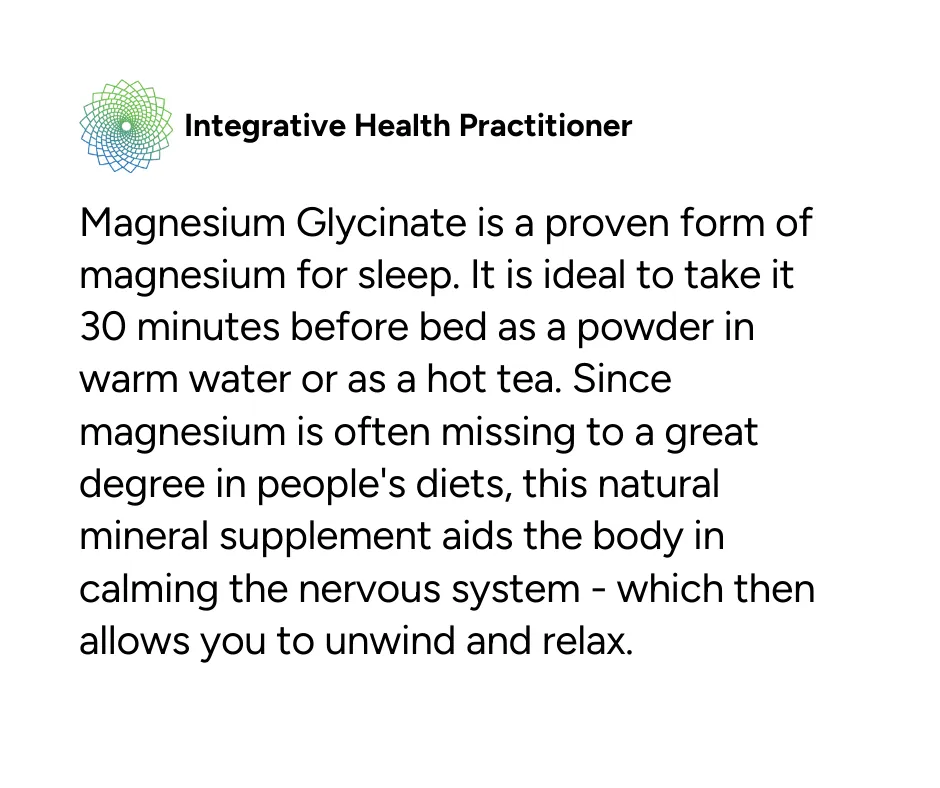
The Missing Mineral: That Could Sabotage Your Sleep
In our fast-paced world, quality sleep has become increasingly elusive. Many of us toss and turn at night, unaware that a simple mineral deficiency might be the root cause of our restless nights. Enter Magnesium Glycinate – a natural solution that could transform your sleep and overall well-being.
Understanding Magnesium's Role in the Body
Magnesium is involved in over 300 enzymatic processes in our bodies, yet it's one of the most common nutrient deficiencies in modern diets. This essential mineral plays a crucial role in muscle function, nerve transmission, and most importantly for our discussion – regulating the body's stress-response system and promoting relaxation.
Why Magnesium Glycinate Stands Out
While there are several forms of magnesium supplements available, Magnesium Glycinate offers unique advantages:
Superior Absorption: Magnesium Glycinate is a chelated form, meaning it's bonded to the amino acid glycine. This bonding enhances bioavailability, allowing your body to absorb and utilize it more effectively.
Gentle on the Stomach: Unlike other forms of magnesium that can cause digestive discomfort or have a laxative effect, Magnesium Glycinate is well-tolerated, even by those with sensitive stomachs.
Enhanced Relaxation Benefits: The glycine component itself has calming properties, working synergistically with magnesium to promote relaxation and improve sleep quality.
How Magnesium Glycinate Supports Sleep
The connection between magnesium and sleep is well-established in scientific research. Here's how it works:
Regulates Neurotransmitters: Magnesium helps activate GABA receptors in the brain. GABA is the neurotransmitter responsible for calming nerve activity, helping you relax and prepare for sleep.
Reduces Stress Hormones: By regulating the hypothalamic-pituitary-adrenal (HPA) axis, magnesium helps control the release of stress hormones like cortisol, which can interfere with sleep when elevated.
Relaxes Muscles: Magnesium helps relax muscles by blocking calcium, which causes muscle contractions. This physical relaxation can help you get comfortable and fall asleep more easily.
How to Incorporate Magnesium Glycinate Into Your Routine
For optimal results, we recommend taking Magnesium Glycinate as a powder mixed with warm water or herbal tea about 30 minutes before bedtime. This timing allows the mineral to be absorbed and start working as you begin your wind-down routine.
The warm liquid itself can be soothing, signaling to your body that it's time to prepare for rest. Creating this consistent ritual can enhance the sleep-inducing effects of the supplement.
Signs You Might Be Magnesium Deficient
Consider whether you experience any of these common signs of magnesium deficiency:
Difficulty falling or staying asleep
Muscle cramps or twitches
Anxiety or restlessness
Fatigue during the day
Headaches or migraines
If these symptoms sound familiar, Magnesium Glycinate might be the missing piece in your wellness puzzle.
A Natural Approach to Better Sleep
In a world filled with sleep medications that often come with unwanted side effects, Magnesium Glycinate offers a natural alternative that works with your body's own systems. Rather than simply sedating you, it addresses the underlying nutritional deficiency that may be preventing you from getting restful sleep.
By nourishing your body with this essential mineral, you're not just improving your sleep – you're supporting overall health and wellbeing.